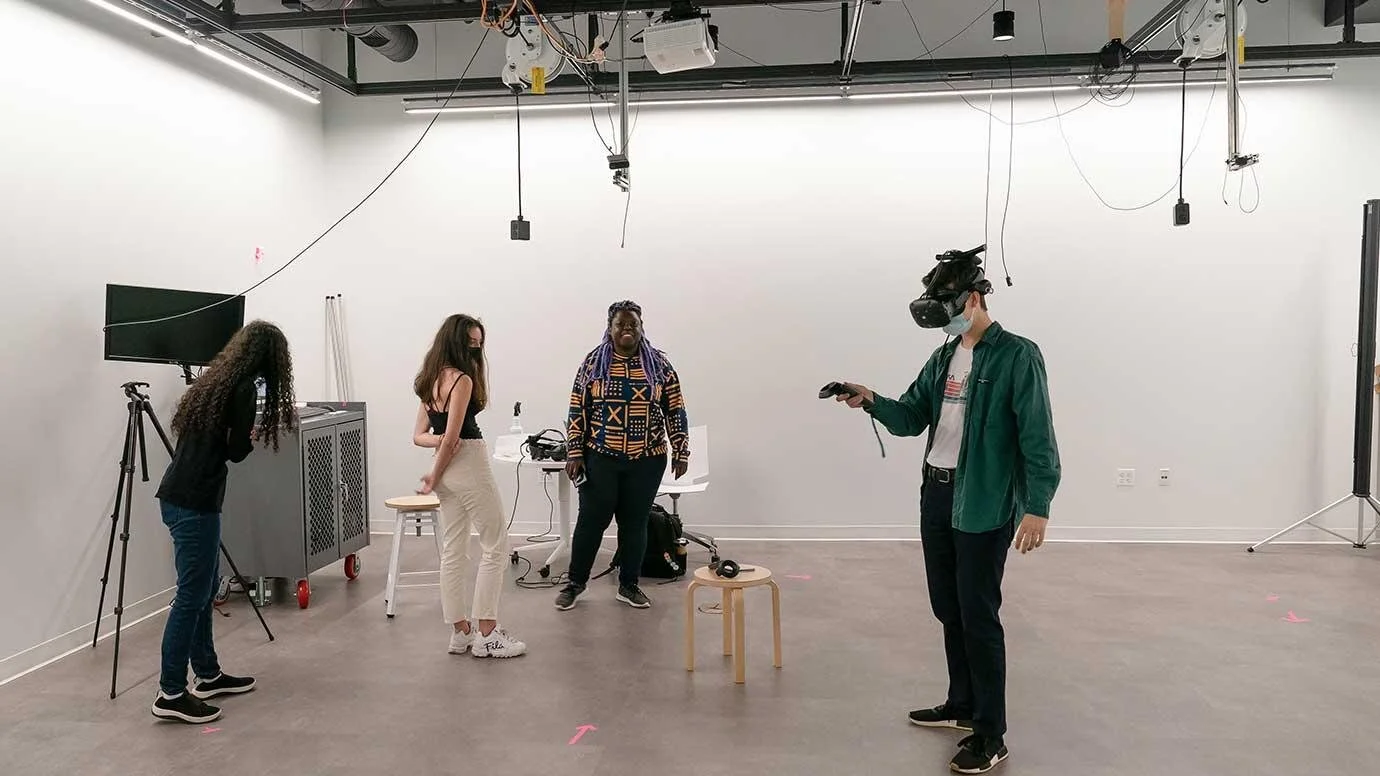For a UChicago designer, video games illuminate real world problems
Ashlyn Sparrow is a game designer and the assistant director of the Weston Game Lab at UChicago. She brings a philosophy of "critical making" to the art of game design, working with students to design video games for social impact.
Ashlyn Sparrow has been obsessed with gaming for years. When she was about 10, her dad bought her a PlayStation—sparking a passion that has grown from a game-filled childhood to a career creating games of her own.
“I’m 32 now, and even though I don’t get an allowance anymore, I still budget for video games,” said Sparrow, a game designer who helps lead the Weston Game Lab at the University of Chicago.
The Weston Game Lab—located in the Media Arts, Data, and Design Center on the first floor of the John Crerar Library—is an expansive classroom and studio space that brings together students, staff and faculty to design and play board games and video games.
Ashlyn Sparrow (second from right) and UChicago students try out a virtual reality game at the Weston Game Lab.
As the assistant director, Sparrow works with UChicago students to create games that at once engage the player and address real-world problems, from climate change to public health.
Video games, Sparrow said, “take the best elements from both novels and cinema—like storytelling and music—and add interactivity and player agency.”
This gives games what Sparrow described as an immersive, “mirror-like” quality: Player-driven, alternate reality narratives, she said, can encourage both designers and players to think critically about how our own society works and our role in it.
Sparrow once designed a game to educate young people about tobacco use. Rather than listing the health risks of smoking, she asked them to adopt the role of tobacco companies, marketing to as many people as possible and scoring points as more became addicted. When customers died off from cancer, they had to adopt new marketing strategies and target new groups of people with different products.
“If you tell people to focus on the goal and play to the game’s objective, they absolutely will, without thinking about the consequences of their actions,” Sparrow said. But during a post-game discussion, students still saw themselves as potential customers targeted by tobacco companies, not marketers. “Anytime they see an advertisement in the future, they’ll know exactly what’s happening,” Sparrow said.
Read the full article at UChicago News.


